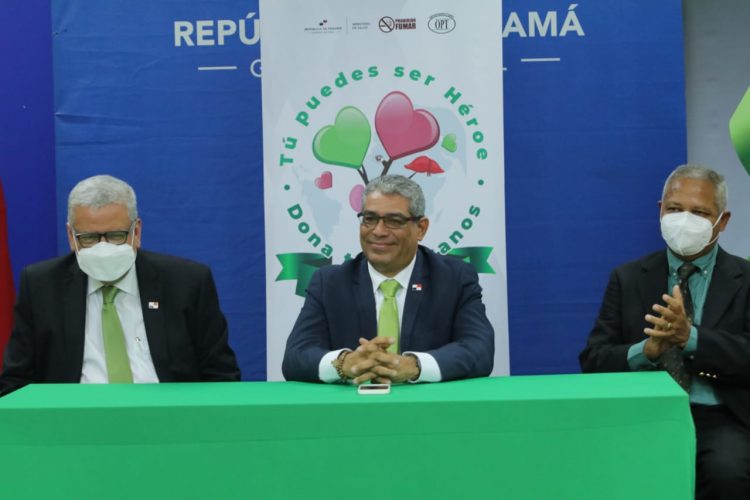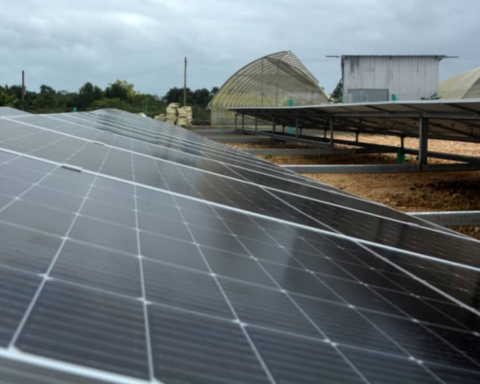Editorial RADIO PANAMA
Health Minister Luis Francisco Sucre and the director of the Panamanian Transplant Organization, César Cuero, announced this Saturday that in 2023 Panama could perform skin transplants.
This important announcement was made during the turning on of green lights at the ministerial headquarters, within the framework of the week to promote organ and tissue donation, where he explained that one of the problems today is that when losing one’s life a donor, relatives with all the pain they have at that moment, most of the time, refuse to donate the organs of the deceased so that they can be transplanted to a waiting patient.
“The simple fact of donating organs is giving life and quality of life to other people, but we must continue helping and encouraging this to continue happening; also to carry out and develop tasks to strengthen organ donation in Panama”, highlighted the Minister of Health, Luis Francisco Sucre.
César Cuero, informed that so far this year, the expectations of the number of the number of transplants have been increased or fulfilled, but that there is still much to be done.
“We are happy with the 41 kidney transplants that have been done this year, before the end of 2022, we hope to be able to do 4 live transplants,” Cuero reported.
He added that there are 165 Panamanians who are on a list for kidney transplantation and added that “there is still a lot to be done in this regard”, since Panamanians must be aware of the importance of donating.
In Panama, you can donate kidneys, corneas, heart, and liver. Next year, Cuero announced, it is expected to do skin implants.
He stressed that, by the year 2023, a draft Law will be presented, which will modify some aspects of Law 3 of the year 2010, which is in force to date, and which allows offering those who suffer from a disease that can be improved or resolved through a transplant, the opportunity to receive the organ.
He reiterated that “when you are a donor you are for life and we must inform our relatives, since the statistics show that, at the time of the donor’s death, 50% of relatives deny the transplant.”
Another of the points of the bill will be the creation of the Panamanian Institute of Organs, in order to increase organ donation, for all that it implies, adding that it would seek to have greater administrative and financial autonomy, to promote donation in the population.
Dr. Cuero concluded that, to be a donor, you only need to be a resident of the country and of legal age. He explained that they can do it through the renewal of the ID, driver’s license and through the website: www.opt.gob.pa, download the registration card and send it.
Donating is giving life!”










